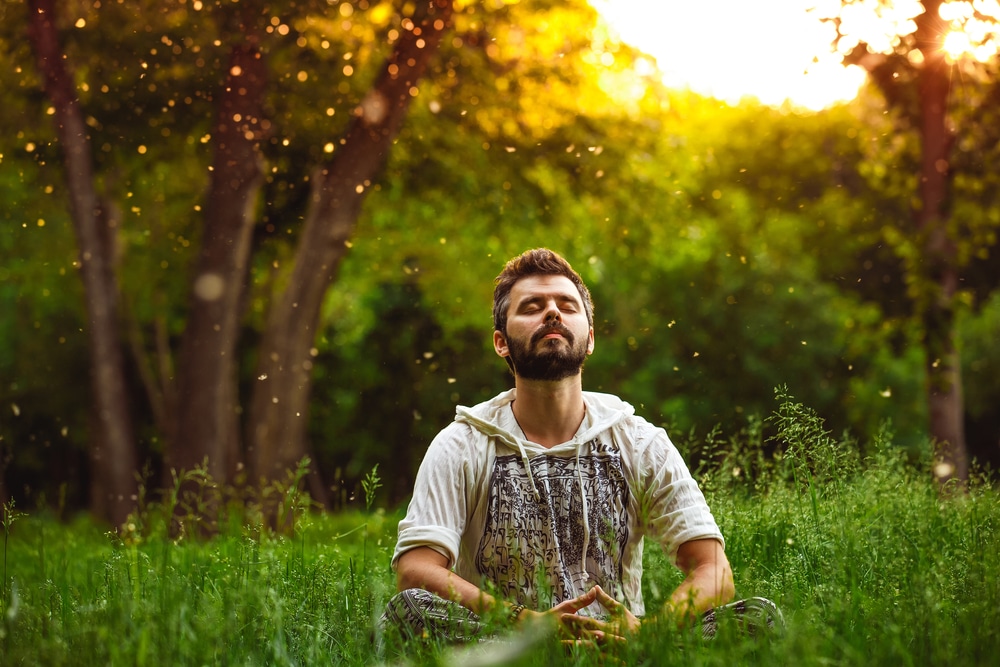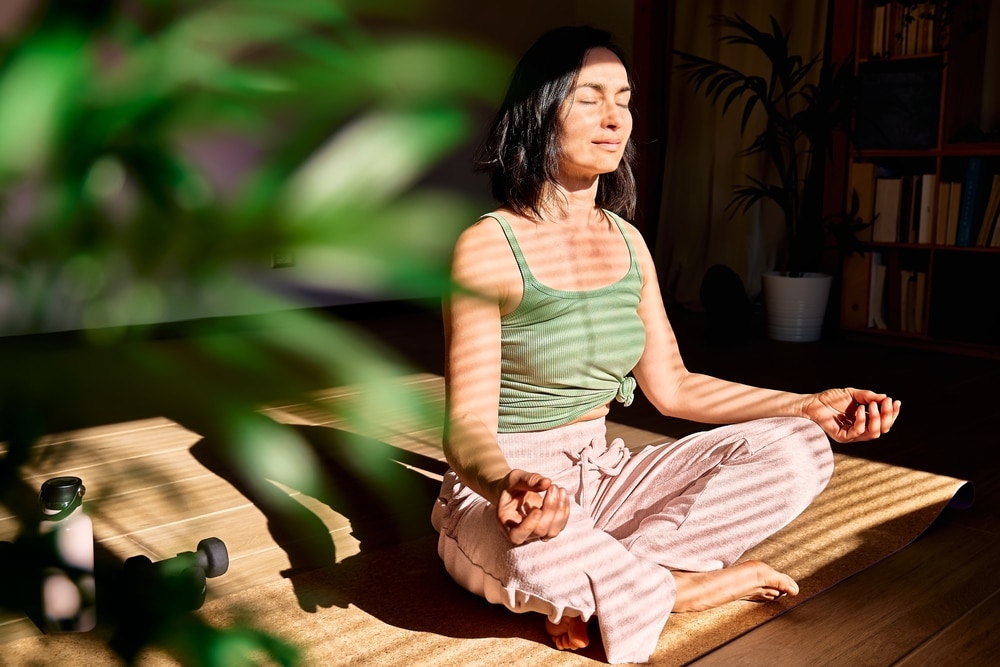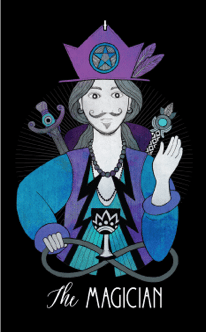In a fast-paced world where stress and anxiety often take center stage, meditation emerges as a beacon of calm and tranquility. This ancient practice, rooted in various spiritual traditions, has found its way into the mainstream as a tool for achieving inner peace, mindfulness, and emotional well-being. In this article, we will delve into the world of meditation, exploring what it is, the myriad benefits it offers, how to meditate, and provide guided meditation for inner peace.
What is Meditation?
At its core, meditation is a practice that involves focusing one’s attention and eliminating the stream of thoughts that may be crowding the mind. This state of focused awareness can be achieved through various techniques, and it’s not limited to any specific religious or spiritual tradition. Meditation can be seen as a journey inward, a way to connect with one’s inner self and to better understand the workings of the mind. It’s a conscious effort to find stillness in a world of chaos. You don’t have to have anything to meditate, and you can do it from anywhere that you feel comfortable. Some people find meditating with tarot cards, prayer beads, or an eye mask and headphones helpful, especially when they are just beginning. It’s your personal practice so curate it however you want.
The Benefits of Meditation
Meditation is often celebrated for its numerous physical, mental, and emotional benefits. Here are some of the most compelling reasons why people practice meditation:
Stress Reduction: Meditation is a powerful tool for reducing stress and anxiety. It allows individuals to release the tension built up in their minds and bodies, bringing about a sense of calm and relaxation.
Improved Emotional Well-being: Regular meditation practice is associated with increased emotional stability and resilience. It can help individuals manage negative emotions more effectively and cultivate a positive outlook on life.
Enhanced Concentration: Meditation trains the mind to focus on the present moment. This improved concentration extends to daily tasks, leading to increased productivity and better decision-making.
Mindfulness: Meditation encourages the practice of mindfulness, which involves being fully present in each moment. This awareness helps individuals appreciate life more deeply and develop a greater sense of gratitude.
Better Sleep: Insomnia and sleep disorders can often be alleviated through meditation. The relaxation it induces can lead to more restful and rejuvenating sleep.
Pain Management: Meditation has been used as an adjunct therapy for chronic pain management. It can reduce the perception of pain and improve one’s ability to cope with discomfort.
Enhanced Self-awareness: Meditation allows individuals to explore their inner selves and gain insights into their thoughts, emotions, and behaviors. This self-awareness can be the foundation for personal growth and development.
Lower Blood Pressure: Regular meditation has been linked to reduced blood pressure, which is beneficial for cardiovascular health.
Boosted Immune System: Some studies suggest that meditation may strengthen the immune system, making the body more resilient to illness.
Improved Relationships: By fostering emotional well-being and empathy, meditation can lead to healthier and more meaningful relationships.
Is Meditation Easy for Beginners?
Meditation can be both easy and difficult for beginners, depending on their individual experience and mindset. Learning to quiet the mind and focus on the present moment can be challenging for individuals who are used to constant stimulation and noise. It can also be difficult to sit still and maintain consistent mindfulness practice, especially in the beginning stages. However, with patience, practice, and the right guidance, meditation can become easier over time. Many beginners find guided meditation apps or classes helpful in providing structure and support for their practice. Ultimately, the ease of meditation for beginners can vary, but with dedication and persistence, it can become a valuable tool for relaxation and self-reflection. Start out with 5-minute meditations and stick with it for a couple of weeks or even a month. When you feel confident you can keep your focus without wavering for 5 minutes, then move on to 10 minutes. Your meditations can be as long or as short as you want them to. Have fun and be patient and forgiving with yourself.
How to Meditate

Meditation is a practice that anyone can undertake, regardless of age, background, or religious beliefs. While there are various meditation techniques, the core principles remain the same. Here’s a simple guide on how to get started with meditation:
1. Find a Quiet Space: Choose a quiet, comfortable place where you won’t be disturbed. It could be a corner of your home, a peaceful park, or even your car during a lunch break.
2. Comfortable Seating: Sit in a comfortable position, such as on a cushion, chair, or the floor. You can also lie down if you prefer but be cautious not to fall asleep.
3. Posture: Keep your back straight, but not rigid. Relax your shoulders and rest your hands on your lap or knees.
4. Close Your Eyes: Closing your eyes can help you focus and block out external distractions. However, some meditative practices involve keeping the eyes open and focusing on a specific object or candle flame.
5. Focus on Your Breath: Start by taking a few deep breaths to settle in. Then, shift your attention to your breath. Pay close attention to the sensation of your breath as it enters and leaves your body.
6. Let Go of Thoughts: Thoughts will inevitably arise. Your goal is not to suppress them but to let them come and go without attachment. Bring your focus back to your breath when you notice your mind wandering.
7. Be Patient: Meditation requires patience. It’s common for your mind to wander, especially when you’re just starting. Each time it does, gently redirect your attention to your breath.
8. Start with Short Sessions: If you’re new to meditation, begin with short sessions, such as 5-10 minutes. As you become more comfortable, you can gradually extend the duration of your meditation.
9. Use Guided Meditations: Guided meditations, like the one provided below, can be helpful for beginners. They offer a structured experience and often include a soothing voice to guide you through the process.
An Easy 10-Minute Guided Meditation
Set aside 10 minutes for this guided meditation. Find a quiet and comfortable space to sit or lie down. Close your eyes and begin by taking a few deep breaths to relax.
Step 1: Relaxation (2 minutes)
Breathe in slowly through your nose for a count of four.
Hold your breath for a count of two.
Exhale slowly through your mouth for a count of six.
Repeat this process for two minutes.
Step 2: Body Scan (2 minutes)
Starting from the top of your head, slowly scan your body for tension.
As you breathe out, imagine releasing and relaxing any tense areas.
Work your way down to your toes.
Step 3: Inner Peace Visualization (4 minutes)
Picture yourself in a serene natural setting, such as a peaceful forest or a quiet beach.
Envision a warm, soft light surrounding you, filling you with a sense of tranquility.
Feel the warmth and serenity spreading through your body with each breath.
Step 4: Gratitude (1 minute)
Bring to mind something you’re grateful for. It could be a person, a moment, or something in your life.
Let the feeling of gratitude wash over you.
Step 5: Closing (1 minute)
Slowly bring your awareness back to your breath.
Gently open your eyes.
Experience the Magic of Meditation
Meditation is a powerful tool that can bring about inner peace and numerous other benefits in your life. By regularly engaging in this practice, you can reduce stress, improve emotional well-being, and gain greater self-awareness. Remember that meditation is a journey, and it’s perfectly fine if your mind wanders from time to time. With practice, you’ll find yourself better equipped to navigate the challenges of life with serenity and grace. So, take a deep breath and embark on your own journey to inner peace through the art of meditation.













